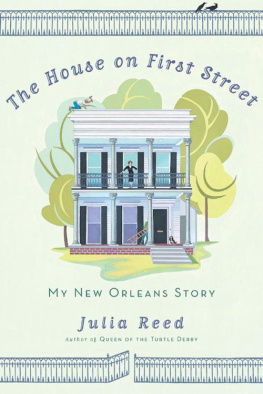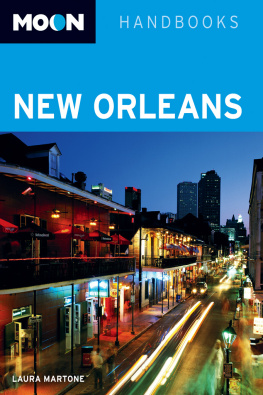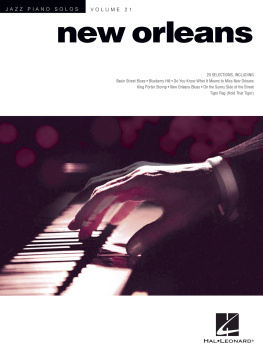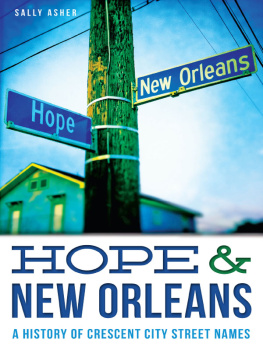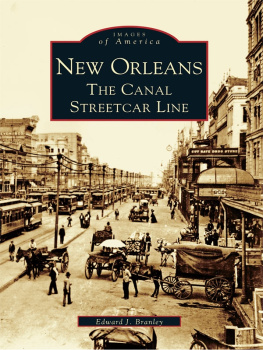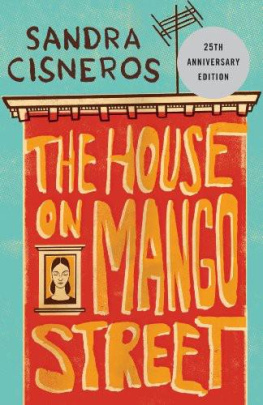Julia Reed - The House on First Street: My New Orleans Story
Here you can read online Julia Reed - The House on First Street: My New Orleans Story full text of the book (entire story) in english for free. Download pdf and epub, get meaning, cover and reviews about this ebook. year: 2008, publisher: Ecco, genre: Detective and thriller. Description of the work, (preface) as well as reviews are available. Best literature library LitArk.com created for fans of good reading and offers a wide selection of genres:
Romance novel
Science fiction
Adventure
Detective
Science
History
Home and family
Prose
Art
Politics
Computer
Non-fiction
Religion
Business
Children
Humor
Choose a favorite category and find really read worthwhile books. Enjoy immersion in the world of imagination, feel the emotions of the characters or learn something new for yourself, make an fascinating discovery.
- Book:The House on First Street: My New Orleans Story
- Author:
- Publisher:Ecco
- Genre:
- Year:2008
- Rating:3 / 5
- Favourites:Add to favourites
- Your mark:
- 60
- 1
- 2
- 3
- 4
- 5
The House on First Street: My New Orleans Story: summary, description and annotation
We offer to read an annotation, description, summary or preface (depends on what the author of the book "The House on First Street: My New Orleans Story" wrote himself). If you haven't found the necessary information about the book — write in the comments, we will try to find it.
Julia Reed: author's other books
Who wrote The House on First Street: My New Orleans Story? Find out the surname, the name of the author of the book and a list of all author's works by series.
The House on First Street: My New Orleans Story — read online for free the complete book (whole text) full work
Below is the text of the book, divided by pages. System saving the place of the last page read, allows you to conveniently read the book "The House on First Street: My New Orleans Story" online for free, without having to search again every time where you left off. Put a bookmark, and you can go to the page where you finished reading at any time.
Font size:
Interval:
Bookmark:
My New Orleans Story

For John

Times are not good here. The city is crumbling into ashes. It has been buried under a lava flood of taxes and frauds and maladministrations so that it has become only a study for archaeologists. Its condition is so bad that when I write about it, as I intend to do soon, nobody will believe I am telling the truth. But it is better to live here in sackcloth and ashes than to own the whole state of Ohio.
LAFCADIO HEARN, WRITING ABOUT NEW ORLEANS TO A FRIEND IN CINCINNATI , 1877
I came down here about a month ago and am living in the old French Creole Quarter, the most civilized place Ive found in America.
OHIO NATIVE SHERWOOD ANDERSON WRITING TO GERTRUDE STEIN, 1922
WHEN I WAS a child, maybe eight or nine, every
I HADNT REALLY been looking, but on the street one
IN RETROSPECT, THE house seemed almost destined. Not only did
THERE WAS A lot to do, but one of my
LIKE MANY PEOPLE in New Orleans, I had not paid
IN WHAT WOULD turn out to be a fairly constant
IT WAS NOT a fear I could dwell on for
AS SOON AS I hung up with Brobson, I called
AFTER WE TENDED to the rest of the gas meters
DURING THE NEXT several weeks, I made a regular loop
THE FIRST WEEKEND in October, the Viking Range Corporation, which
THOUGH MY LATEST endeavor was exactly the sort of thing
BLANCO MAY HAVE been the governor, and the mayor was,
DURING CHRISTMAS, THREE more plumbing disasters had occurred. When my
DURING CARNIVAL, ELIZABETH and Katie and I rode together in
ALL SUMMER, WE had been looking for a dogthe beagle
ON JANUARY 17, 2007, almost a year and five months
W HEN I WAS a child, maybe eight or nine, every few months the phone would ring and I would answer, and on the other end a man named Noel Parmentel Jr. would be playing a bugle into the receiver. He would be drunk, of course, and my father would take the phone and laugh a lot, and my mother would roll her eyes. She was not a big fan of Noel, who always stayed too long when he came to visit. Later he turned out to be at least partial inspiration for the rather dissolute character of Warren in Joan Didions The Book of Common Prayer , and reading that book in the cold light of adulthood, I can certainly see my mothers point. At the time, though, I thought Noel was just about the coolest human being on the planet, and, at the time, Noel lived in New Orleans, a place I imagined was full of a lot of heavy-drinking, horn-playing bad actors just like him. I could not wait to go. But even in my childhood fantasies, I had no intention of stayingit was clearly a place to visit.
In those days, pretty much everybody I knew visiteda lot. Theyd go down and eat well and drink too much and generally live it up. They might go for the architecture or the music, and they almost always brought stuff back home: old cypress mantels, jumbo lump crabmeat, evening sandals from Maison Blanche. They might step back in time, or out of it altogether, but nobody ever stayed for good. It would be too dangerous, too indulgent. Even Noel didnt stick around long. The only person I knew who did was Walker Percy, our neighbors brother, but he was a writer after all, and, more to the point, one on a search.
I grew up in the Mississippi Delta, in Greenville, a once-thriving port city 442 miles up the Mississippi from New Orleans. We were linked by commercefrom the mid-1800s until just after World War II, steamboats brought everything from fine chandeliers to sacks of oysters upriver and toted countless bales of cotton back downas well as tragedy (both cities were devastated by the 1927 flood). There was also a certain worldliness, marked in part by an easy consumption of whiskey, along with a shared isolation from the rest of the Deep South with all its morals and mores. In King Cotton , a history of the Deltas heyday, Robert Brandfon writes that by the end of the nineteenth century, the expanded railroads made the trip from the Delta to New Orleans faster and far more convenient, a development that nurtured the Deltans already healthy sense of cosmopolitanism, as well as our feeling of separateness from (or, more accurately, superiority over) the rest of the state.
The Deltas legendary economy and lifestyle were attributable to the fact that the land was the richest alluvial flood plain in the world. Well into my adolescence, there was a distinctif sometimes laughableGatsby-esque quality to some of the social doings there. One of my more entertaining childhood duties was the morning-after collecting of evening bags lost so often, and so far from where they should have been, they required If found, please call notes safety-pinned onto the satin linings. But whatever we got up toand we got up to a lotNew Orleans was always our far more storied older sister to the south, a genuinely cosmopolitan city, and one where everything, from world-class restaurants to transvestite hookers, was available. By the time I was born, steamboats and railcars had mostly given way to small planes and automobiles, but the traffic was just as dense and the field reports endlessly interesting. My father went to a towboat convention with his friend Johnny Kirk and returned with one of my favorite artifacts, an eight-by-ten of the two of them taken with, not by, the pretty girl photographer on the patio of Pat OBriens. One of the running jokes of my youth involved the fact that every year my best friends grandfather flew Mississippi Senator Big Jim Eastland to New Orleans for the Sugar Bowl, and every yeardiverted, apparently, by the more interesting goings-on in the Royal Sonesta barthey missed the game.
Things happened in New Orleans that didnt happen anywhere else. Walker Percy wrote, not entirely in jest, that he moved across Lake Pontchartrain to Covington, for fear of falling victim to a variety of French flus, the symptoms of which included turning fey and pottering about a patio, but there were far greater dangers. The beautiful Maury McGee got married in the Delta and during the course of the reception, a great many of the guests decided to accompany the bride and groom on their honeymoon. When they woke up, hung over, in New Orleans the next morning, they found themselves barricaded in their hotel rooms. A sniper on the roof of the nearby Howard Johnsons had already killed eight people and the whole area was in lockdown. A Greenville lawyer trying a case in New Orleans celebrated a particularly triumphant day in court with a prostitute who shot him in his room at the St. Louis Hotel just before taking all his money. He told his wife hed been an innocent victim of foul play, but our local paperand everybody else who knew anything about itdropped plenty of hints as to what actually happened, a story confirmed years later by one of my husbands law partners who had been with him at the defense table.
To me this kind of stuff only added to the citys allure, but no more so than descriptions of slightly tamer stuffa jacket set on fire by a tipsy waiter serving flaming caf brlot at Arnauds, say, or exotic breakfasts of powdered-sugar-covered beignets and chicory coffee at Caf Du Monde. The suppliers of all these detailsmy parents, their friends, just about everybody I grew up aroundwere not visitors to New Orleans so much as regular out-of-towners. Just like the locals, they ate their oysters at either Felixs or the Acme but would never patronize both; they had their own waiters at Antoines, where I longed to try souffled potatoes and baked Alaska, and at Galatoires, where I was determined to learn, firsthand, the difference between trout meunire and trout Marguery. They knew that everybody still called the Fairmont Hotel the Roosevelt even though the name changed in 1965, and they were well known in the hotels Blue Room, where you went for music (Benny Goodman, Peggy Lee), and its Sazerac Bar, where the cocktails included, naturally, Sazeracs, which were said to have been invented there, along with an excellent Ramos gin fizz made with real egg whites.
Font size:
Interval:
Bookmark:
Similar books «The House on First Street: My New Orleans Story»
Look at similar books to The House on First Street: My New Orleans Story. We have selected literature similar in name and meaning in the hope of providing readers with more options to find new, interesting, not yet read works.
Discussion, reviews of the book The House on First Street: My New Orleans Story and just readers' own opinions. Leave your comments, write what you think about the work, its meaning or the main characters. Specify what exactly you liked and what you didn't like, and why you think so.

